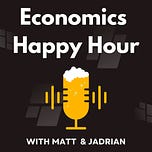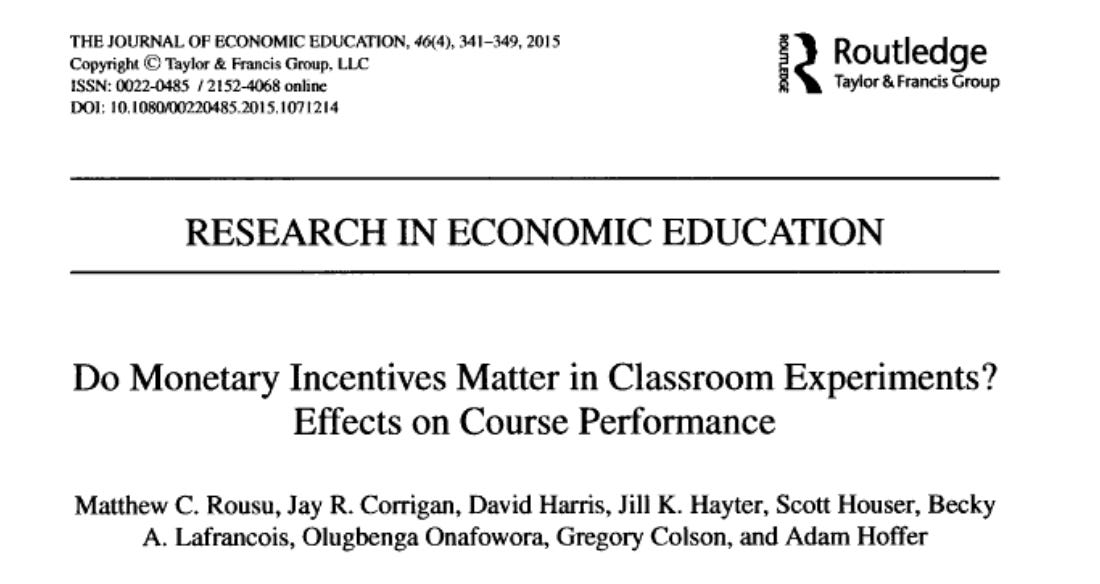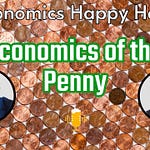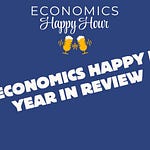Matt and Jadrian spent a few days in Atlanta with some amazing economics educators at the Conference on Teaching and Research in Economic Education. While we were there, we took some time to chat with some economists about what they do in their professional lives. First up was Emily Marshall, who has done some work recently on how different universities are changing their curriculum to become STEM (Science, Technology, Engineering, and Mathematics) certified. They explore the criteria for STEM classification, the historical context of economics being considered STEM, and the implications of this designation, particularly for international students studying in the United States.
In this episode, we discuss:
The CTREE conference and our presentations
Criteria for STEM classification and its application to economics
Historical context of economics being designated as a STEM field
Implications of STEM classification for international students
Preliminary findings on the benefits for universities switching to STEM degrees
And a whole lot more!
Catch up on some old episodes:
You can also listen to us on Google Podcasts, TuneIn Radio, and Apple Podcasts. If one of these is your go-to podcast service, be sure to rate us and subscribe!
Watch this episode on YouTube:
Some show notes:
Since we were surrounded by a bunch of economics educators at CTREE, we figured it was the perfect chance to go back to a brewery and record some interviews with our friends. This was the first of four recordings at Pour Taproom in Midtown Atlanta, who were supportive of us spending a few hours on the second floor recording multiple episodes of the podcast.
Our first chat was with Emily Marshall, who is currently an Associate Professor in the Economics Department at Dickinson College. She kicked us off with an El Comprade amber ale from New Realm Brewery in Atlanta. Jadrian at Matt both had beers from Printer’s Ale Manufacturing Company out of Carrollton, Georgia. Jadrian went with a Dylux lager and Matt poured himself Everyday Cyan IPA.
We were all there for different reasons, but Emily was part of an interesting workshop where presenters were showing how they use EconGraphs.org in their classroom. The site was developed by Chris Makler at Stanford and is completely open access for any instructor or student who wants a more interactive way of learning economics with graphs. Jadrian was part of a panel that looked at working conditions for “teaching track” economists and Matt was discussing a multi-site experiment he published years ago, but that has found renewed interest from a group looking to formalize experiments in economic education research more broadly.
The focus of this week’s episode, however, was on the question of whether Economics qualifies as a STEM (Science, Technology, Engineering, and Mathematics) discipline. Emily explained some of the background for the criteria used to determine STEM classification by the Department of Homeland Security, which originally focused on more traditional science, technology, engineering, and mathematics fields. Economics has only recently been included under this classification in a specific designation: Econometrics and Quantitative Economics.
All degrees in the United States are coded based on a 6-digit code (known as a CIP Code) that tells the federal government what type of degree a student earned. This makes it easier to compare degrees across institutions. In the United States, there are 6 types of economics degrees that a student could earn:
(45.0601) Economics, General.
(45.0602) Applied Economics.
(45.0603) Econometrics and Quantitative Economics.
(45.0604) Development Economics and International Development.
(45.0605) International Economics.
(45.0699) Economics, Other.
A decade ago, almost all economics majors were earning degrees classified as General Economics. However, because of the growing emphasis on empirical and quantitative methods in the discipline, it’s not too surprising that the DHS added economics as an eligible program. Most universities were awarding economics degrees coded as 45.0601, but DHS allows only the 45.0603 degrees to be considered STEM.
Some universities created brand new majors under the STEM-eligible code while other programs merely requested their accrediting body reclassify their current program to the STEM-eligible code. Regardless of the reason, the update has significant implications for international students studying economics in the US, as it affects their visa options post-graduation. It turns out that universities may also benefit as well!
This week’s pop culture references:
In honor of the upcoming Tony Awards on June 16th, Matt shared a Broadway reference from Bob Fosse’s Sweet Charity. He highlighted the song "Hey Big Spender" as a prime example of rent-seeking behavior. In the song, the dancers halt their productive activities to focus solely on attracting the attention of the "big spender." This shift in focus from productive endeavors to pursuing a single, non-productive goal mirrors the concept of rent-seeking, where individuals or groups seek to gain wealth through activities that do not create any new wealth themselves.
Emily shared a unique pop culture experience that she and fellow economists had in Atlanta. They had the opportunity to meet CeeLo Green and had a memorable photo with the group. This unexpected encounter provided a fun and memorable moment for the group during their time at CTREE.






















Share this post